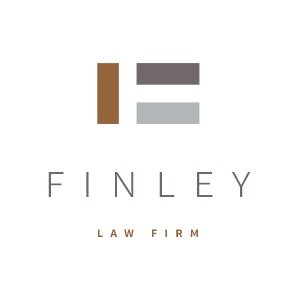Best Property Insurance Lawyers in United States
Share your needs with us, get contacted by law firms.
Free. Takes 2 min.
Or refine your search by selecting a city:
List of the best lawyers in United States
About Property Insurance Law in United States
Property insurance law in the United States encompasses a variety of legal principles and regulations designed to protect both insurers and insured parties in the event of property loss or damage. It primarily deals with policies that homeowners, renters, and commercial property owners purchase to safeguard against risks such as fire, theft, vandalism, and natural disasters. Each state in the U.S. has its regulations and rules, making it essential for insured parties to understand both federal and state-level legislation concerning property insurance.
Why You May Need a Lawyer
Engaging a lawyer might be necessary in several common situations involving property insurance:
- Claims Denial: Insurance companies may deny claims, which can be contested legally if the denial seems unjustified or violates policy terms.
- Underpayment of Claims: Sometimes, insurance payouts may be lower than expected, requiring legal intervention to negotiate a fair settlement.
- Policy Interpretation Disputes: Ambiguities in policy wording can lead to differing interpretations which might require legal clarification.
- Bad Faith Practices: If an insurer is acting in bad faith by delaying, denying, or underpaying claims without valid reasons, legal action might be necessary.
- Fraud Concerns: Disputes over fraudulent claims or misrepresentation can lead to legal challenges requiring professional legal assistance.
Local Laws Overview
Property insurance laws in the United States vary significantly by state, but some key aspects generally include:
- State Regulations: States regulate insurers to ensure fair practice and protect consumers. This includes the approval of policy forms and rates by state insurance departments.
- Standard Policy Provisions: Many states adopt standard forms for insurance policies, which can help in understanding common provisions and exclusions.
- Consumer Protections: There are legal provisions aimed at protecting consumers against unfair insurance practices, including the right to appeal denied claims and requirements for transparent policy terms.
- Catastrophic Events: Some states have specific laws addressing coverage related to natural disasters like hurricanes, earthquakes, and floods.
Frequently Asked Questions
What is covered under property insurance policies?
Property insurance typically covers the physical structure of a home or commercial building, personal property within the building, and liability for accidents that occur on the property.
What should I do if my insurance claim is denied?
If your insurance claim is denied, you should ask for a written explanation from your insurer and review your policy to ensure coverage. Consulting with a property insurance lawyer for legal advice is also recommended.
How does my state regulate property insurance rates?
Each state has an insurance department that must approve the rates insurers charge. Insurance companies are required to justify their rates based on anticipated claims costs and operational expenses.
Can I make changes to my insurance policy after it’s issued?
Yes, you can request changes to your insurance policy, known as endorsements, at any time, though the insurer must agree to the changes.
What is an insurance adjuster’s role in a property insurance claim?
An insurance adjuster’s role is to assess the damage, determine the amount of loss or damage covered under the policy, and negotiate the claim settlement.
Does property insurance cover flood damage?
Most standard property insurance policies do not cover flood damage. Flood insurance is typically purchased as a separate policy through the National Flood Insurance Program (NFIP) or private insurers.
What is the difference between replacement cost and actual cash value?
Replacement cost covers the cost to replace damaged property with similar new items, without deducting for depreciation, while actual cash value subtracts depreciation from the replacement cost.
Are there any exclusions I should be aware of in my property insurance policy?
Common exclusions may include damage from earth movements, floods, lack of maintenance, and intentional acts. Always review your policy for specific exclusions.
How long does an insurer have to settle a claim?
This varies by state, but generally, insurers must acknowledge a claim promptly and make a determination within a reasonable time frame, which is often specified by state law.
Can I appeal my claim if it's denied or underpaid?
Yes, most policies have an appeal process. It may also be wise to seek legal advice if you believe your claim was unfairly denied or underpaid.
Additional Resources
For further assistance and information, consider these resources:
- National Association of Insurance Commissioners (NAIC)
- Your state’s Department of Insurance
- The Federal Emergency Management Agency (FEMA) for flood insurance information
- Insurance Information Institute
Next Steps
If you need legal assistance regarding property insurance issues, consider the following steps:
- Consult with a property insurance attorney who is well-versed in your state’s laws.
- Gather all relevant documents, including your insurance policy, claim forms, and correspondence with your insurer.
- Prepare a detailed account of the issue at hand, including any actions taken and responses received.
- Contact local legal aid organizations if you require assistance with finding affordable legal counsel.
Lawzana helps you find the best lawyers and law firms in United States through a curated and pre-screened list of qualified legal professionals. Our platform offers rankings and detailed profiles of attorneys and law firms, allowing you to compare based on practice areas, including Property Insurance, experience, and client feedback.
Each profile includes a description of the firm's areas of practice, client reviews, team members and partners, year of establishment, spoken languages, office locations, contact information, social media presence, and any published articles or resources. Most firms on our platform speak English and are experienced in both local and international legal matters.
Get a quote from top-rated law firms in United States — quickly, securely, and without unnecessary hassle.
Disclaimer:
The information provided on this page is for general informational purposes only and does not constitute legal advice. While we strive to ensure the accuracy and relevance of the content, legal information may change over time, and interpretations of the law can vary. You should always consult with a qualified legal professional for advice specific to your situation.
We disclaim all liability for actions taken or not taken based on the content of this page. If you believe any information is incorrect or outdated, please contact us, and we will review and update it where appropriate.
Browse property insurance law firms by state in United States
Refine your search by selecting a state.















